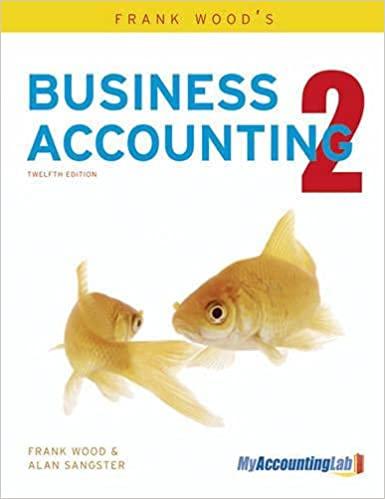Question
The senior VP in charge has asked that you make a recommendation for the purchase of new equipment. Ideally, the company wants to limit its
The senior VP in charge has asked that you make a recommendation for the purchase of new equipment. Ideally, the company wants to limit its capital investment to $300,000. However, if an asset merits spending more, an investment exceeding this limit may be considered. You assemble a team to help you. Your goal is to determine which option will result in the best investment for the company. To encourage capital investments, the government has exempted taxes on profits from new investments. This legislation is to be in effect for the foreseeable future. The average reported operating income for the company is $830,500. The company uses an 11% discount rate in evaluating capital investments.
Option 1: The asset cost is $345,000. The asset is expected to have a 11-year useful life with no salvage value. Straight-line depreciation is used. The net cash inflow is expected to be $35,000 each year for 11 years. A significant portion of this asset is made from recycled material. When disposed of, certain parts of the asset can be recycled. The delivery time for this asset is 3 weeks. Employees ranked this option as their second choice because they are environmentally conscious and would prefer an asset that is environmentally friendly.
Option 2: The asset cost is $400,000. The machine is expected to have an 8-year useful life with no salvage value. Straight-line depreciation is used. The net cash inflow is expected to be $110,000 each year for 8 years. This asset is the smallest and most efficient in its product line. The delivery time for this asset is 6 weeks. Management has expressed a preference for this option because it is believed that it will have a greater impact on productivity.
Option 3: The asset cost is $265,000, The asset is expected to have a 10-year useful life with no salvage value. Straight-line depreciation is used. The net cash inflow is expected to be $48,000 each year for 10 years. This asset has a lower-than-normal rating because of frequent maintenance needs. This asset is similar to the existing unit and would require the least amount of training time for employees. The delivery time for this asset is 8 weeks. Employees ranked this option as their first choice because the learning curve for it is minimal.
REQUIRED You may use Excels built-in functions for NPV and IRR. Compute the following for the above-referenced investment options: 1.Payback period/method (assume cash inflows occur evenly throughout the year) 2.Unadjusted rate of return (also called simple rate of return and accounting rate of return) 3.NPV (assume that cash inflows occur at year-end) 4.Internal rate of return (IRR) 5. Present Value Index Create a ranking chart to show how the three options rank on each of the five measures. See sample below (or something similar).
 \begin{tabular}{|l|r|r|r|} \hline & Option 1 & \multicolumn{1}{|c|}{ Option 2 } & \multicolumn{1}{|c|}{ Option 3 } \\ \hline Payback period & 1 & 2 & 3 \\ \hline Net present value & 2 & 1 & 3 \\ \hline Internal rate of return & 3 & 1 & 2 \\ \hline Unadjusted rate of return & 1 & 2 & 3 \\ \hline Present Value Index & 2 & 1 & 3 \\ \hline Total & 9 & 7 & 14 \\ \hline \end{tabular}
\begin{tabular}{|l|r|r|r|} \hline & Option 1 & \multicolumn{1}{|c|}{ Option 2 } & \multicolumn{1}{|c|}{ Option 3 } \\ \hline Payback period & 1 & 2 & 3 \\ \hline Net present value & 2 & 1 & 3 \\ \hline Internal rate of return & 3 & 1 & 2 \\ \hline Unadjusted rate of return & 1 & 2 & 3 \\ \hline Present Value Index & 2 & 1 & 3 \\ \hline Total & 9 & 7 & 14 \\ \hline \end{tabular} Step by Step Solution
There are 3 Steps involved in it
Step: 1

Get Instant Access to Expert-Tailored Solutions
See step-by-step solutions with expert insights and AI powered tools for academic success
Step: 2

Step: 3

Ace Your Homework with AI
Get the answers you need in no time with our AI-driven, step-by-step assistance
Get Started


